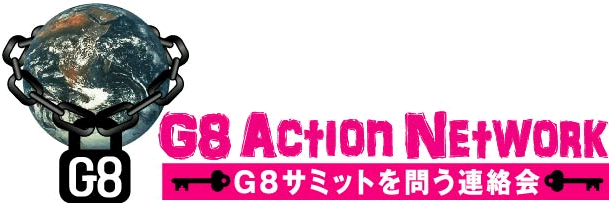
連絡会メニューUser login |
28April ICD: African Unions Want Better G8 Accountability Over AIDS
The General Secretary of ITUC-AFRO, Kwasi Adu-Smankwah has echoed the call by the Global Union AIDS Programme (GUAP) for trade unions to deliver a message about HIV/AIDS to the Japanese Embassy of their country regarding the G8 meeting of the richest countries of the world next July in Japan. Adu-Smakwah says that African workers and trade unions are the first to pay the price when the G8 countries make hollow promises about HIV/AIDS and don’t follow up on their commitments. “It is vital that African unions make their voice heard by supporting the call by the GUAP to demand better accountability mechanisms about HIV/AIDS”. In circulating the GUAP literature about the campaign he urged ITUC-AFRICA members throughout the continent to deliver a letter to their Japanese Embassy. Japan is hosting this years G8, which will discuss African development and universal access to treatment, care and support for HIV/AIDS, as well as the strengthening of health systems, among other topics. Adu-Smakwah also encouraged unions to plan their actions as part of this year’s lead up to the 28 April International Commemoration Day (ICD) for Dead and Injured Workers, which aims to highlight health system development and delivery, under the banner of “Good Occupational Health For All Workers”. “Several years of serious work by trade unions on the question of G8 accountability has paved the way for annual reviews to take place and now is the time for the G8 to take a more decisive step to create a Working Group to follow and properly implement HIV/AIDS decisions”. “With so many lives at risk, accelerated progress to achieve universal access to prevention, treatment, care and support by 2010 and to realize the Millennium Development Goals is vital, together with strengthening of health systems”, he said.
Over 100 million people fall into absolute poverty each year due to illness or disability because they lack access to health services. For so many African workers, sickness or injury often leads to job loss with no compensation or health care. The high cost of health care is the single most important factor driving Africans into deeper financial difficulties, and occupational injury and disease thereby aggravate world and African poverty. AIDS is itself an occupational disease in many sectors and beyond that also contributes to the overall impact on workers’ health and productivity, in the world and in Africa. “Resources for strengthening health systems must therefore be a priority so as to halt the slide of segments of our population into extreme poverty because they have no access to or are unable to afford adequate treatment or care, cautioning that added resources in this field must not compromise resources to deal with specific diseases, especially in sub-Saharan Africa where the death toll due to malaria and HIV/AIDS is the highest, particularly for children and women. ITUC-AFRICA is also asking trade unions contacting Japanese embassies to show support for the global trade union G8 statement, which will focus on the major economic issues, including HIV/AIDS as well as investment & poverty, climate change, African Development, and public and occupational health. Contact Angela Lomosi [Angela.Lomosi@ituc-africa.org].
|
Events
Upcoming events |